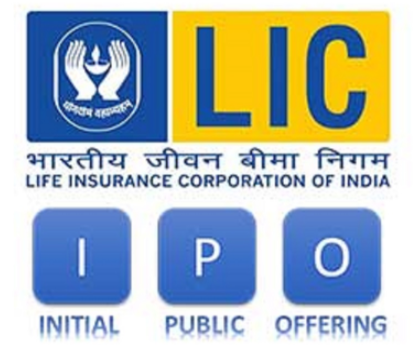Life Insurance Corporation of India IPO-Department of Financial Services has prepared a draft to sell stake in LIC and it has been sent to the concerned ministries including SEBI, IRDA and NITI Aayog. The government is preparing to reduce its stake in LIC from 100 to 75 percent.
The government has accelerated the process of bringing IPO of the country’s largest insurance company LIC-Life Insurance Corporation of India. But its listing in the stock market may be different. According to information received from sources to CNBC Awaaz, the IPO of the country’s state-run insurance company LIC may prove to be India’s largest IPO till date. As part of the Life Insurance Corporation of India’s plan to sell a 25 percent stake, the government is considering giving bonuses and discounts to retail investors. The Department of Financial Services has prepared a draft to sell stake in LIC and it has been sent to the concerned ministries including SEBI, IRDA, and NITI Aayog. A source aware of the entire matter said that the government wants to reduce its stake in the company from 100 percent to 75 percent.
Sources said that the government can sell up to 25% of the total stake in LIC in different installments. It is necessary to raise the minimum public shareholding 25% within 3 years after listing. In the beginning, LIC can also issue bonus shares. Retail investors and employees can get up to 10% discount. The LIC Act of 1956 proposes 6 major changes related to Capital and Management. The cabinet draft note issued will be approved soon. A change in the Act can be introduced in the form of a money bill in the next session of Parliament.
What is the new plan of the government regarding LIC IPO – 5% of shares can be reserved for retail investors and employees? However, the decision to reserve shares will be taken only after cabinet approval.
Also Read: 8.45 lakh new enrollments in EPFO in July, what does it mean?
Apart from this, bonus shares can also be provided in the initial days. Changes will also be made in the LIC Act, 1956 by the government to sell the LIC stake. LIC was established under this act.
LIC does not operate under the Companies Act, rather it is an autonomous body and is operated under the LIC Act, 1956. After approval from the cabinet, the government will present the proposal for the amendment of the LIC Act in Parliament.
The Modi government hopes to raise a large amount from LIC’s IPO in the Corona era. The government believes that during this period, the gap between the increase in expenditure on welfare schemes and reduction in tax will be compensated by selling the LIC stake. Perhaps this is the reason why the government has decided to sell a 25 percent stake in LIC, whereas earlier the plan was to sell only a 10 percent stake.
What is the LIC Act? The LIC Act states that the sum assured by all policies issued by the corporation, including bonuses declared in relation thereto and subject to the provisions contained in section 14, by all policies issued by any insurance company, Payable under The Corporation under this Act, and all bonuses declared in relation thereto, whether before or after the appointed day, shall be guaranteed by the Central Government as payment in cash.
After all, why does the government want to list LIC? – For the financial year 2020-21, the central government has set a disinvestment target of Rs 1.20 lakh crore. It is believed that the IPO of LIC may prove to be the largest IPO in the country. The IPO of LIC will help in offsetting the fiscal deficit. In the budget, the government has raised the fiscal deficit to 3.8 percent from the present 3.3 percent of GDP. This estimate is 3.5 percent for the next financial year.
You have also taken a LIC policy, what will be the effect? - LIC has a hold over three-fourths of the insurance market in India. However, only last year, some wrong decisions of LIC regarding investment were also questioned. Now with the government’s decision to bring LIC IPO, it is believed that after the listing of LIC, there will be more transparency in the functioning of the company.
If the company performs better, then the insurance holders will also get the benefit. Experts say that most of the policies of LIC are the non-unit link.
This means that if there is any fluctuation in the stock market, then the effect will not be seen on the policy. At the same time, the effect of better performance of the company will be seen positively on the investment of the people.


